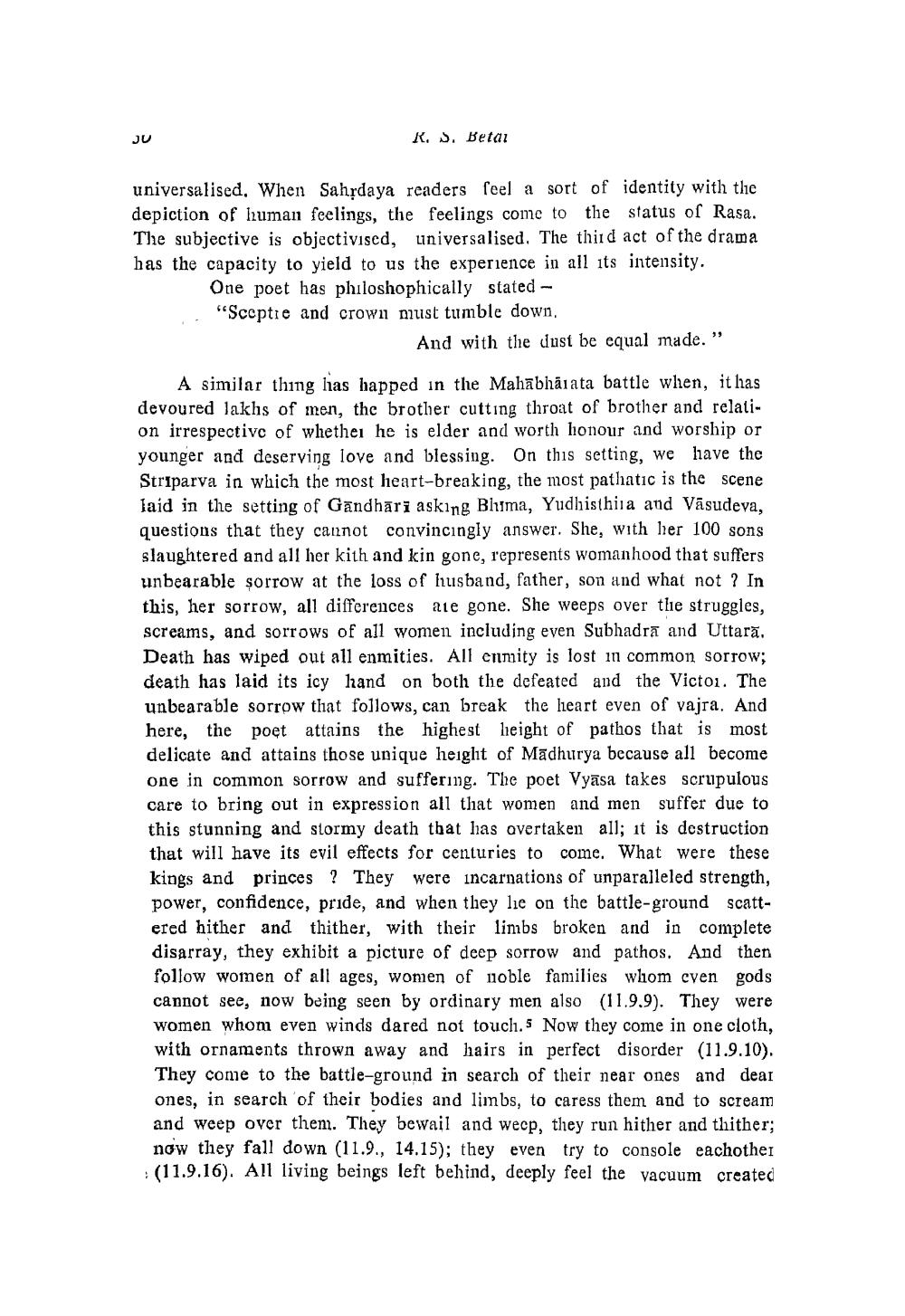________________
R. S. Betai
universalised. When Sahrdaya readers feel a sort of identity with the depiction of human feelings, the feelings come to the status of Rasa. The subjective is objectiviscd, universalised. The third act of the drama has the capacity to yield to us the experience in all its intensity.
One poet has philoshophically stated - "Sceptie and crown must tumble down.
And with the dust be equal made."
A similar thing has happed in the Mahabhäiata battle when, it has devoured lakhs of men, the brother cutting throat of brother and relation irrespective of whether he is elder and worth honour and worship or younger and deserving love and blessing. On this setting, we have the Striparva in which the most heart-breaking, the most pathatic is the scene laid in the setting of Gāndhari asking Bluma, Yudhisthira and Vasudeva, questions that they cannot convincingly answer. She, with her 100 sons slaughtered and all her kith and kin gone, represents womanhood that suffers unbearable sorrow at the loss of husband, father, son and what not ? In this, her sorrow, all differences are gone. She weeps over the struggles, screams, and sorrows of all women including even Subhadra and Uttară. Death has wiped out all enmities. All enmity is lost in common sorrow; death has laid its icy land on both the defeated and the Victoi. The unbearable sorrow that follows, can break the lieart even of vajra. And here, the poet attains the highest leight of pathos that is most delicate and attains those unique height of Madhurya because all become one in common sorrow and suffering. The poet Vyasa takes scrupulous care to bring out in expression all that women and men suffer due to this stunning and stormy death that has overtaken all; it is destruction that will have its evil effects for centuries to come. What were these kings and princes ? They were incarnations of unparalleled strength, power, confidence, pride, and when they lie on the battle-ground scattered hither and thither, with their limbs broken and in complete disarray, they exhibit a picture of deep sorrow and pathos. And then follow women of all ages, women of noble families whom even gods cannot see, now being seen by ordinary men also (11.9.9). They were women whom even winds dared not touch.5 Now they come in one cloth, with ornaments thrown away and hairs in perfect disorder (11.9.10). They come to the battle-ground in search of their near ones and dear ones, in search of their bodies and limbs, to caress them and to scream and weep over them. They bewail and wecp, they run hither and thither; now they fall down (11.9., 14.15); they even try to console eachother (11.9.16). All living beings left behind, deeply feel the vacuum created




